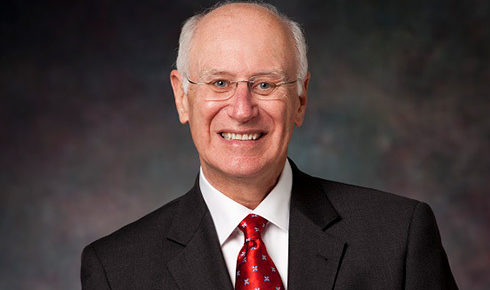
This year saw two historic commemorations in October. The first was the centennial of the Russian Revolution, October 24-25, 1917, the anniversary of atheistic communism prevailing in Russia. The second followed a week later on October 31: the 500th anniversary of the Protestant Reformation. Both the Revolution and Reformation promised liberty.
Unless you are a devout communist, the Bolshevik revolution led by Vladimir Lenin has proved to be anything but liberating. It is estimated that more than 94 million people perished under various communist regimes in the 20th century.
I visited one of the “killing fields” in Cambodia and saw just one location among many where more than a million people were killed between 1975-1979 by the Khmer Rouge. This was not a “holy” purifying rite, but a barbaric, born-in-hell demonstration of our deep depravity.
Communism’s man-made, utopian vision of perfect economic, political and social equality has its own eschatology of hope. It has its own “heaven”—the worker’s paradise—and its own judgments upon those who resist its self-ordained march through history. Its morality is based on human power.
While it is unlikely that most of us reading this devotion paused to remember the Bolshevik Revolution, many of us likely remembered the Reformation that began with Martin Luther. Some may have even gathered in Wittenberg, Germany, to commemorate the nailing of Luther’s 95 Theses on the church door.
Luther’s story is one of personal courage. His courage came from conviction of the eternal Word of God. Prior to 1517, this unknown Augustinian monk had buried himself in the Psalms, Romans and Galatians. Luther’s personal prayer life opened his heart to the power of the Spirit in understanding the Word.
For Luther, prayer was the communication through which he learned how to lead a world-transforming movement. Through the Bible, he discovered the liberating power of faith in the saving work of Jesus Christ. Through preaching, teaching and writing about this liberating truth, Luther unleashed spiritual dynamics that impact us to this day.
Admittedly not everything is rosy in the Reformation story. There was violence in the German Peasants’ War (1524-1525). Later, the divisions between Protestants and Roman Catholics, and even within various branches of Protestantism, led to violence and wars. And sadly, in our day, spiritual renewal and political power are difficult to separate, and we often ponder who are the wheat and who are the tares (Matt. 13:25).
But Luther’s Reformation, for its flaws and divisions, nonetheless had its future hopes centered in Jesus Christ. Regardless of the details of eschatology, the primary eschatology was rooted in Christ’s victory over the sin that is so destructive to all humanity.
In reflecting on the Spirit’s call for us to be engaged in liberating ministry, I am reminded that it was Jesus Himself who recognized the Spirit’s prophetic anointing upon Himself as He began His public ministry (Luke 4:18-19; Isa. 61:1-2). His liberating ministry was manifested in human suffering and, finally, His own suffering on the cross.
As we ponder our ministry, may we avoid the worldly temptations of power, of utopias, and willingly stand in the gap for the lost and suffering. Our prayer remains “Thy kingdom come,” not “our kingdom come.”
Prayer Points
- Pray that the Holy Spirit will enable us to learn from history.
- Pray that the Holy Spirit will enable us to discern what is truly God’s redeeming work in our world and not to be deceived by false utopias.
- Pray that our ministry efforts at liberation will be in the Spirit and heart of Jesus.
Share your thoughts. See comments below, and add your own.


